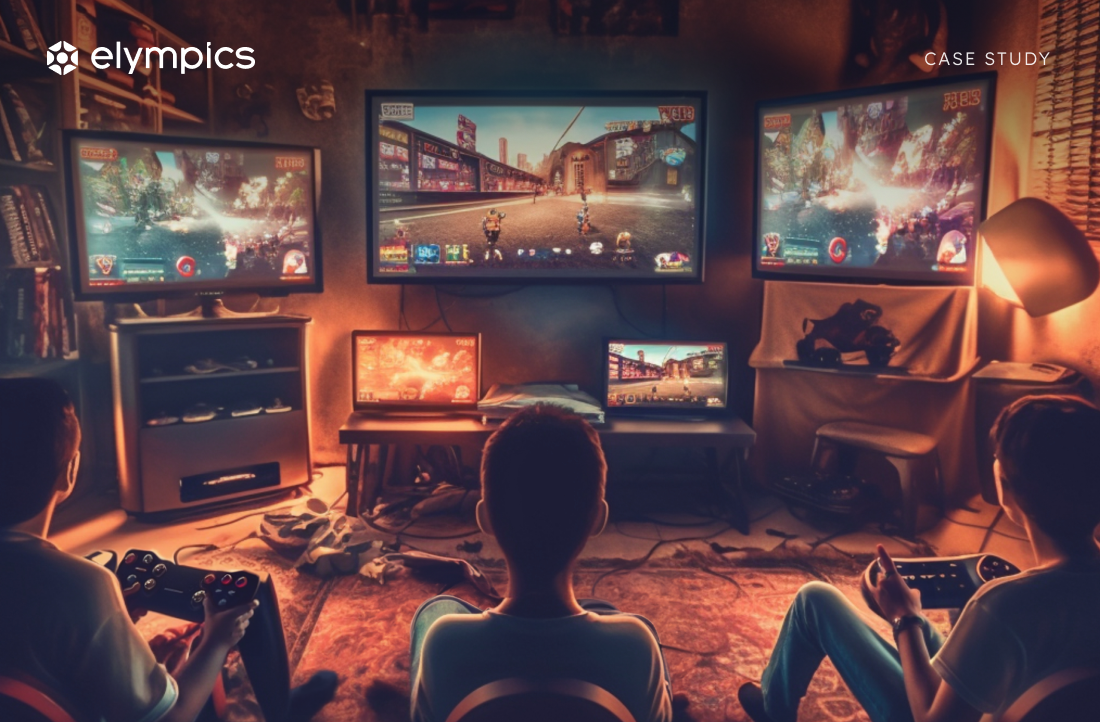Web3 gaming's potential for inclusivity has faced notable challenges over the last few years. What initially seemed to be a groundbreaking evolution of conventional gaming has proven somewhat immature, falling short of igniting the anticipated revolution. In 2021, these games, primarily due to financial barriers, became more exclusive, posing a hindrance to accessibility and making them less attractive to traditional players keen on venturing into the new gaming frontier.
Web3 Gaming: A Misconstrued Accessibility
The original vision for web3 gaming promised inclusivity and an enhanced gaming experience compared to traditional web2 games we all know and play. However, reality painted a different picture. These games didn't just have exclusivity tied to technological barriers; they were strategically designed to attract players ready to make significant financial investments in purchasing in-game items or tokens that fueled the in-game economy that was inflationary by nature. The idea of accessibility turned into a paradox, where playing the game meant a mandatory financial commitment, resembling buying the pieces to play a match of chess with your friend.
The appeal of web3 gaming waned as it distinctly favored players with deep pockets, establishing an in-game ecosystem thriving on financial investments. The inflationary nature of in-game assets demanded financial commitments, transforming web3 gaming into a form of "farming protocols” that were widely known during the early days of 2020, also known as the DeFi Summer. Player rewards became linked to the funds injected into the game, creating an atmosphere more akin to speculative investment with aim to earn the highest APY/APR possible and abandoning the idea of genuine fun stemming from the gameplay.
This approach, hiding farming mechanisms in the game, received a lot of criticism from those recognizing the hidden drawbacks that impeded web3 gaming's growth - and finally led to its demise. It became evident that a shift in approach was necessary to create genuine games for players rather than protocols mainly catering to crypto enthusiasts.
The Evolution: How Web3 Gaming Should Be
The evolution of web3 gaming necessitates a shift towards inclusivity, putting a spotlight on accessibility for all players regardless of their financial status. The fundamental principle should revolve around free-to-play game design, enabling anyone to join and experience web3 games without the obligation to purchase in-game assets. However, there’s also the scenario involving optional in-game purchases, empowering players to invest based on personal preferences and within the context of a specific game as we all know a significant group of players find games that offer them the possibility to e.g. customize their characters by buying skins etc. highly exciting - the case of Fortnite or CS:GO skins are the best examples here.
That’s why web3 games should take two distinct forms: exclusive games with purchase or subscription fees, resembling traditional gaming models, and free-to-play games that embrace players without financial constraints. The latter ensures that players can participate and compete without financial barriers, creating an environment where the joy of the game prevails over monetary commitments.
Inclusivity should extend beyond design philosophy to the accessibility of web3 games and focus on integrating them into mainstream platforms such as Google Play, AppStore, or platforms like Epic Games where players wouldn’t feel a difference between playing web2 or web3 games. Players should seamlessly move between web2 and web3 games which would also erase any concerns about the security of web3 games that some players might still have. The responsibility lies with web3 games to provide newcomers with a smooth introduction to this new gaming realm, sidestepping the complexities tied to crypto-related mechanisms that might seem unfamiliar to new players.
Addressing obstacles like creating and funding wallets with game-related tokens is crucial as those can and will effectively limit the potential for virality. Gaming should be fun, and if potential players see psychological and financial obstacles along the way, with each one of them some players will give up on further exploration.
Elympics and Clash of Orbs: Pioneering Inclusivity
Elympics, acknowledging the limitations of the initial wave of web3 gaming, is dedicated to offering something genuinely distinctive. Leading our efforts is "Clash of Orbs," a game crafted to address the needs of both free-to-play enthusiasts and those eager for meaningful competition with financial stakes on top.
Clash of Orbs embodies inclusivity by welcoming free-to-play participation, allowing anyone to join and compete against others. Players can choose to enter competitive arenas where they have the option to put funds at stake and test their skills against others. This dual approach caters to a diverse audience, ensuring that the game is defined not by financial constraints but by the preferences of the players themselves.
For a comprehensive exploration of Clash of Orbs, check out our latest article delving into the game's intricacies:
Clash of Orbs - The Embodiment of Compete to Earn - https://elympics23.webflow.io/post/clash-of-orbs---the-embodiment-of-compete-to-earn
Beta Testing and Beyond
Recently, we conducted beta testing for Clash of Orbs within a closed environment, hosting an in-house tournament that surpassed our expectations when it comes to fun we had. We knew we’re building something special, but this was truly an amazing experience. The positive response has made us excited, and we're eager to share this experience with the larger gaming community. Maybe soon, we'll have public tournaments with great prizes as well…
https://twitter.com/elympicsgames/status/1752361448196424000
Clash of Orbs: A Game-Changer in Web3 Gaming
Taking a deeper dive into the revolutionary realm of web3 gaming, Clash of Orbs stands out as a game-changer, positioned to redefine the player experience. Why? Let me show you…
Inclusive Design
Clash of Orbs stands as a testament to our commitment to inclusivity, welcoming players with diverse levels of financial commitment - or none at all. The game adopts a free-to-play model, allowing everyone to join and engage in the gaming experience without the requirement to purchase in-game assets. This broadens the player base, making Clash of Orbs a game for all where everyone will have fun.
Compete to Earn
At the heart of Clash of Orbs lies the concept of Compete-to-Earn which, unlike previous iterations of web3 games that leaned towards farming protocols, centers on genuine competition where only skill can decide about the victory. Players can choose to put their funds at stake, injecting an extra layer of excitement into the gameplay and… financial rewards if you’re better than your opponent.
Future of Inclusive Web3 Gaming
As we navigate the complexities of web3 gaming, drawing lessons from its initial challenges and embracing the potential of the upcoming trend, Elympics and Clash of Orbs emerge as catalysts for change and user attraction. The shift towards an inclusive web3 gaming future is in progress, with Clash of Orbs soon leading the way.
Elympics extends an invitation to players from all walks of life to be part of this experience as Clash of Orbs is not just a game; it's a manifestation of our dedication to inclusivity, accessibility, and a genuine player-centric approach with skill-based model at its core. Elympics stands at the forefront, inviting you to join and redefine the way we experience and engage with games. Will you accept the invitation?
























